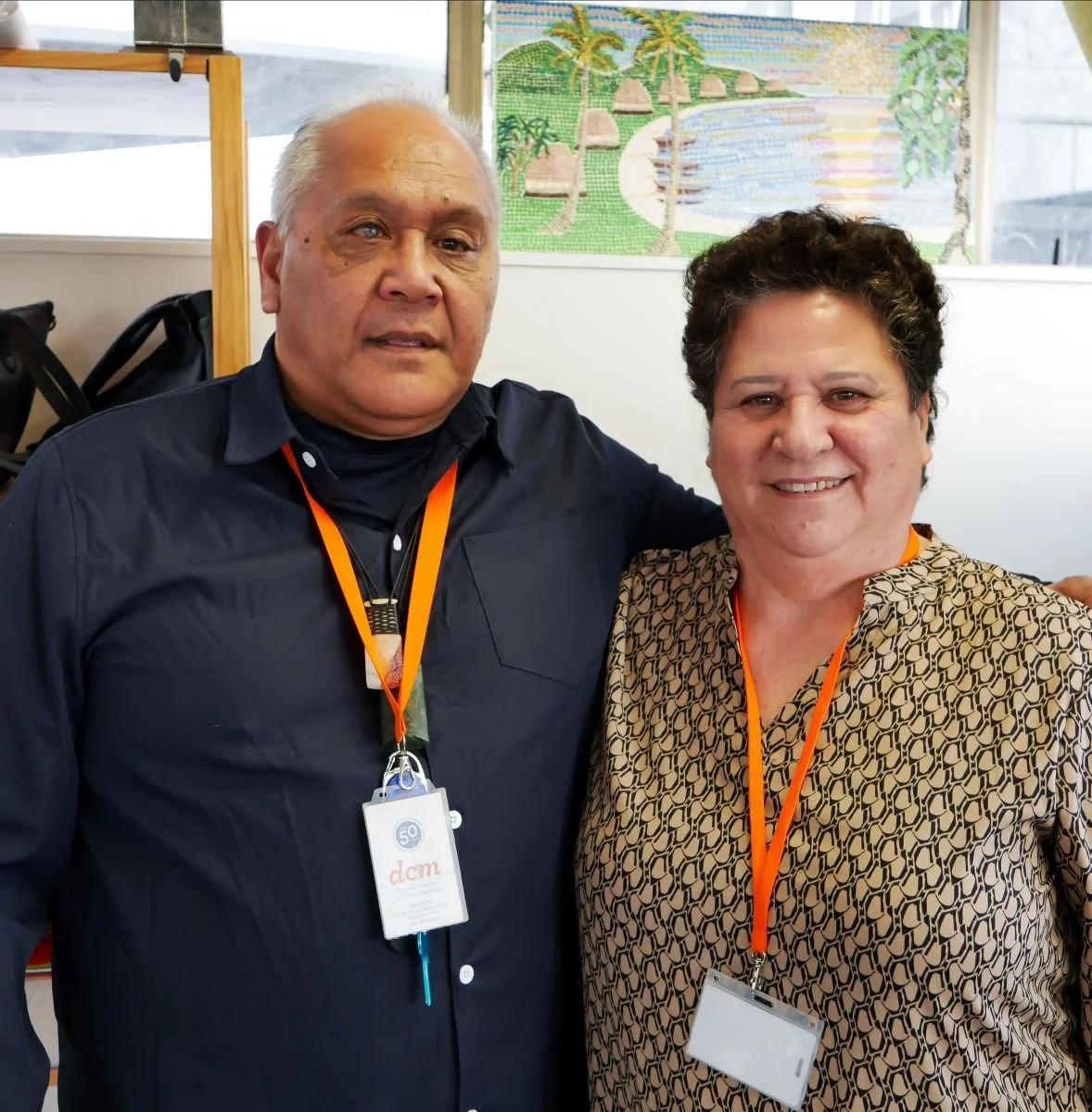The Work Doesn't Stop at a Roof
The work doesn’t stop at a roof. It’s just the beginning of a journey - one that Noho Pai walks with whānau every step of the way.
Moses and Penny, Kaimahi in our Noho Pai team
Finding a house is a huge part of our whānau’s journey – but that is often just the beginning. At DCM, our Noho Pai (Sustaining Tenancies) team works hard everyday to ensure that our most vulnerable whānau not only remain housed but also find stability, belonging, and hope for their future.
The Noho Pai service steps in when whānau are at risk of losing their homes. Penny and Moses, two of our dedicated Kaimahi (staff), describe their work as a daily commitment to walking alongside whānau in their toughest times, as their equals.
Our team receives referrals from various sources, both from within DCM and from external agencies. The reasons for referral vary - unpaid rent, property maintenance issues, or unauthorised occupants - but the goal is always the same: keep the whānau housed.
The people that Noho Pai work with are among Wellington’s most marginalised. Many have been let down by the systems meant to support them. They’re wary of help, often feeling judged or mistreated. Noho Pai seeks to be different: uplifting and empowering rather than taking over. DCM is often considered the ‘last resort’ for many of these whānau but we don’t see it that way.
“They lose their voice. Society judges them, or mistreats them, and they no longer have a voice. So we become their voice, for as long as they need us to be.”- Penny, Noho Pai
The immense adjustments that come with transitioning from homelessness to permanent housing means that whānau often find it difficult to manage a household and pay their rent and other bills. Living on very low-incomes, they may need support with groceries, budgeting, or connecting with other organisations. Faced with so many new responsibilities, these ‘basic’ skills can feel overwhelming.
Previous trauma and addiction can create a cascade of problems, while mental health issues often lead to labels like ‘anti-social,’ which Penny and Moses find dismissive and unhelpful. These labels can further alienate whānau, they say, making reintegration into society more difficult.
The stories our Kaimahi hear are often difficult and confronting, but they also create perspective which makes the ‘small’ successes all the more meaningful. It’s about celebrating every victory - especially when whānau take ownership of their journey, set new goals, and ask, “What do I need to do to achieve this?”
We stay with our whānau for as long as they need us, celebrating their growth and successes along the way. And when they’re ready to move forward on their own, we develop an exit plan together, ensuring they know they can always come back.
The work doesn’t stop at a roof. It’s just the beginning of a journey - one that Noho Pai walks with whānau every step of the way.

